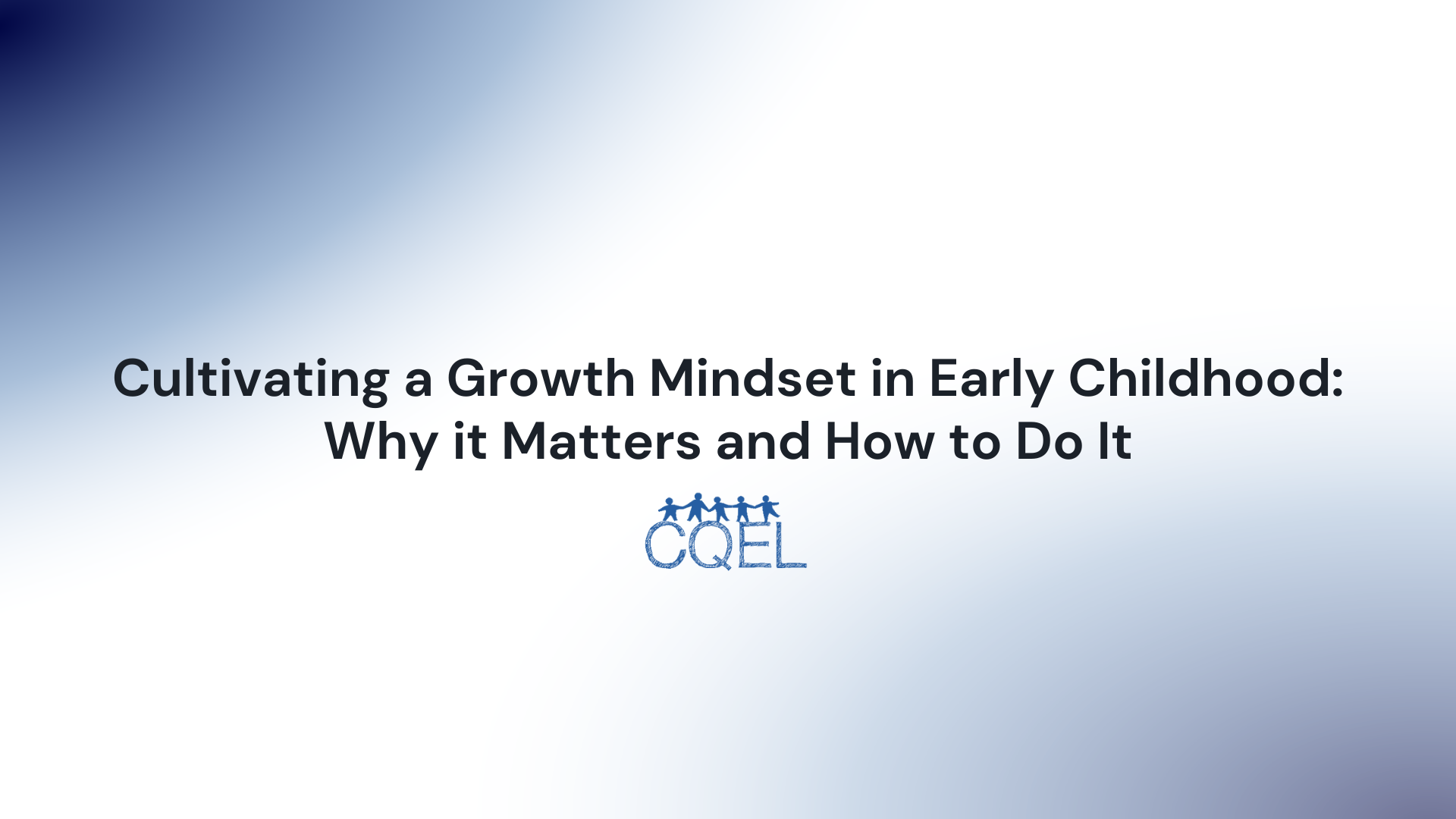Cultivating a Growth Mindset in Early Childhood: Why it Matters and How to Do It
By fostering a growth mindset in children from an early age, we can help them to become more resilient, motivated, and successful learners. But how?

The concept of growth mindset, first put forth by psychologist Carol Dweck, holds immense potential for early childhood education. This theory posits that intelligence and abilities are not fixed traits; rather, they can be developed over time through dedication, hard work, and a love for learning. This is in contrast to a fixed mindset, which holds that intelligence and abilities are static. By fostering a growth mindset in children from an early age, we can help them to become more resilient, motivated, and successful learners.
The Crucial Impact of a Growth Mindset
The impact of a growth mindset on a child's learning journey can be profound. Studies have demonstrated that children who adopt a growth mindset tend to be more motivated, resilient, and open to new experiences. They also show greater perseverance in the face of challenges, and are more likely to take risks and embrace learning opportunities. The Stanford Graduate School of Education offers ample resources and insights on the positive impact of a growth mindset on learning.
Modeling a Growth Mindset
As with many aspects of learning in early childhood, the best way to teach a growth mindset is to model it. As educators, our language and behavior can powerfully shape children's attitudes towards learning. By demonstrating curiosity, perseverance, and an open-minded attitude towards mistakes, we can help children to internalize these values. Resources such as the Mindset Works website offer valuable tips and strategies for educators seeking to model a growth mindset.
The Power of Praise
The type of praise we give children can significantly influence their mindset. Instead of praising children for their innate abilities or intelligence – which promotes a fixed mindset – we should strive to praise their effort, strategies, and progress. This shift helps children understand that it's their effort and attitude that leads to growth and learning. The Mindset Kit provides practical advice on using praise to foster a growth mindset.
Promoting Perseverance and Resilience
Perseverance and resilience are key components of a growth mindset. As educators, we should create a learning environment that encourages children to take on challenges, persist in the face of setbacks, and see failure as an opportunity to learn. Tools like the Big Life Journal's resilience kit can provide valuable resources for promoting these important traits.
Growth Mindset and the Power of Yet
The word 'yet' can be a powerful tool in fostering a growth mindset. When a child says they can't do something, we can encourage them by adding the word 'yet' to their statement, thereby turning it into a learning opportunity. This small shift in language can make a significant difference, helping children to see their potential for growth and to view challenges as opportunities for learning.
Integrating Growth Mindset into the Curriculum
To foster a growth mindset, it should be seamlessly integrated into the curriculum. This can be achieved through activities that promote critical thinking, problem-solving, and creativity, as well as through stories and discussions that highlight the power of perseverance, effort, and learning from mistakes. The Class Dojo series on growth mindset is an excellent resource to incorporate into lesson plans.
Engaging Parents in Fostering a Growth Mindset
Parents are key partners in cultivating a growth mindset. By communicating the importance of a growth mindset and sharing strategies they can use at home, we can ensure that children receive consistent messages about the value of effort, the importance of perseverance, and the ability to grow and learn. Mindset Works' Parent resources can be a useful tool to share with parents.
By nurturing a growth mindset in early childhood, we can help children to build the resilience, motivation, and passion for learning that will set the stage for their future success. These strategies and resources can guide us in this essential endeavor.
